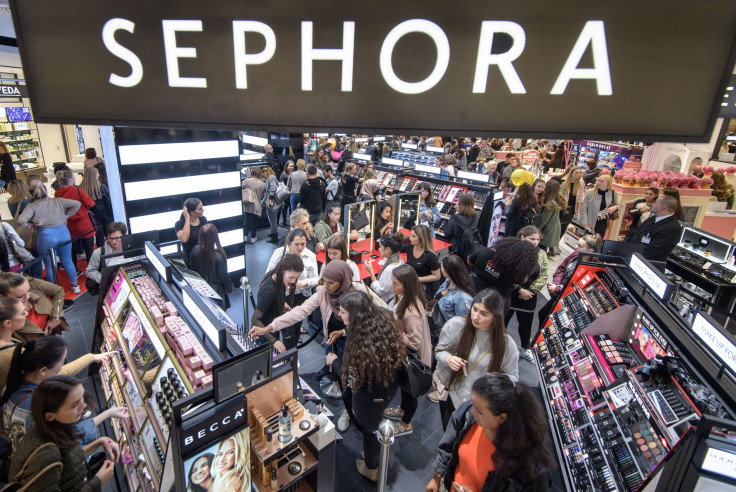Woman Sues Sephora, Claiming Lipstick Samples Gave Her Herpes

A woman is reportedly suing the cosmetic brand Sephora after claiming she contracted herpes from using one of the store's lipstick samples.
The woman stated she visited a store in Los Angeles, California, back in October 2015 and used one of the sample lipsticks put up on display. In documents obtained by TMZ, she states medical professionals later diagnosed her with herpes, a condition she had never had before her visit to the store.
According to the unnamed woman’s complaint, doctors said Sephora failed to clearly warn the woman or any other customers of the risk of getting herpes or other diseases from trying on the lipstick samples. According to the woman, she would never have tried them had she known the possible effects.
She claimed that other lipstick companies used proven methods like individual samples or assistance from trained staff to avoid exposure to herpes.
MedlinePlus, an online information service produced by the United States National Library of Medicine defines oral herpes as “an infection of the lips, mouth, or gums due to the herpes simplex virus. It causes small, painful blisters commonly called cold sores or fever blisters.”
According to the website, herpes viruses spread from individuals with an active outbreak or sore. Two ways to catch the virus are having intimate or personal contact with someone who is infected, or touch herpes sore or any object that has been in contact with the herpes virus, such as infected razors, towels, dishes, and other shared items.
The woman is suing the company for an unspecified amount for causing emotional distress due to the 'incurable lifelong affliction'. International Business Times has reached out to Sephora for a comment.
This is not the first time the French cosmetic retailer is facing a lawsuit. In 201, a lawsuit claimed Sephora USA Inc had blocked the online accounts of many customers with Asian names because it suspected them of buying discount items in bulk to resell them.
The suit came after a promotional sale that caused Sephora’s website to crash. At the time, Sephora said it had resulted from large numbers of bulk shoppers looking to take advantage of the low prices so they could resell the items for a profit. However, the lawsuit said only customers with Asian names or email addresses from Chinese domains were blocked from the site in the hours after it crashed.
The company denied claims of only Asian people being affected and said clients from many countries including the U.S. were impacted.
"As we have said before, the allegations in this lawsuit are untrue and the claims are without merit. In fact, clients from many countries around the world, including the U.S., were impacted by the temporary outage of the Company's website during a promotional event last year. Sephora would never engage in any form of discrimination with respect to its clients, and it looks forward to full exoneration in this lawsuit."
It was later reported that Sephora had agreed to settle the class action lawsuit to avoid the burden and expense of ongoing litigation.
© Copyright IBTimes 2025. All rights reserved.





















